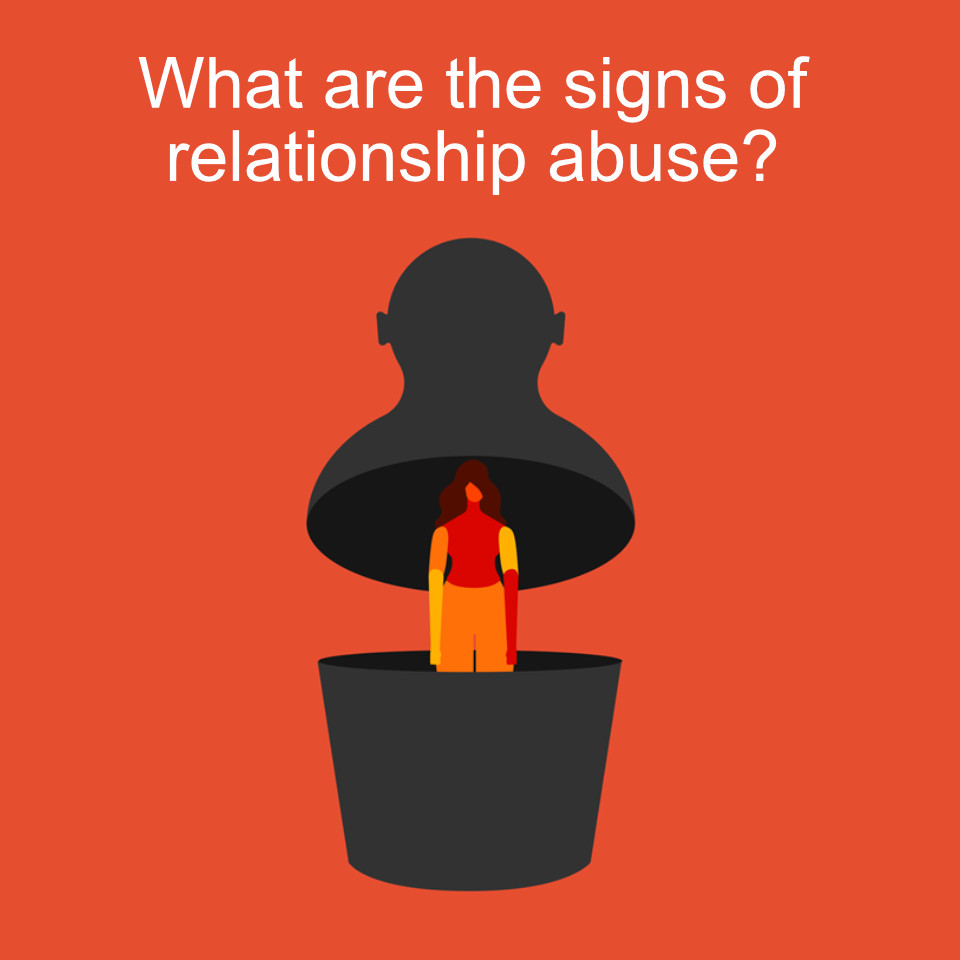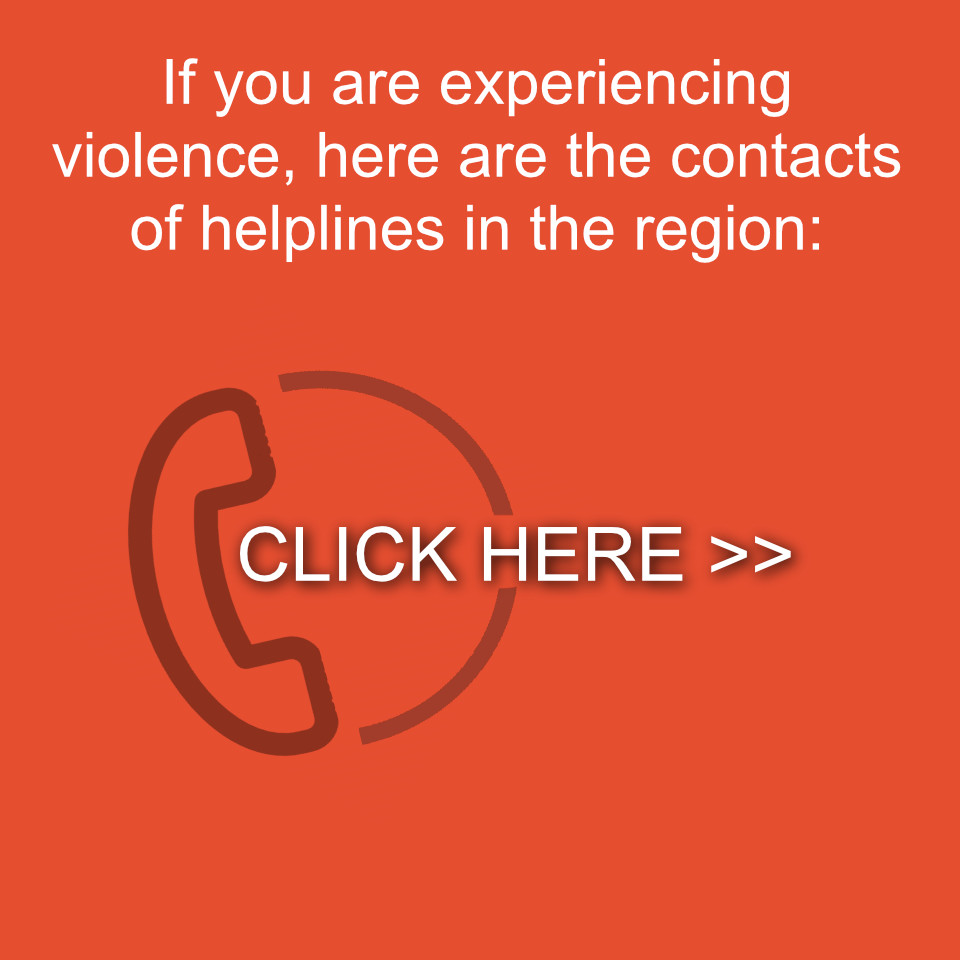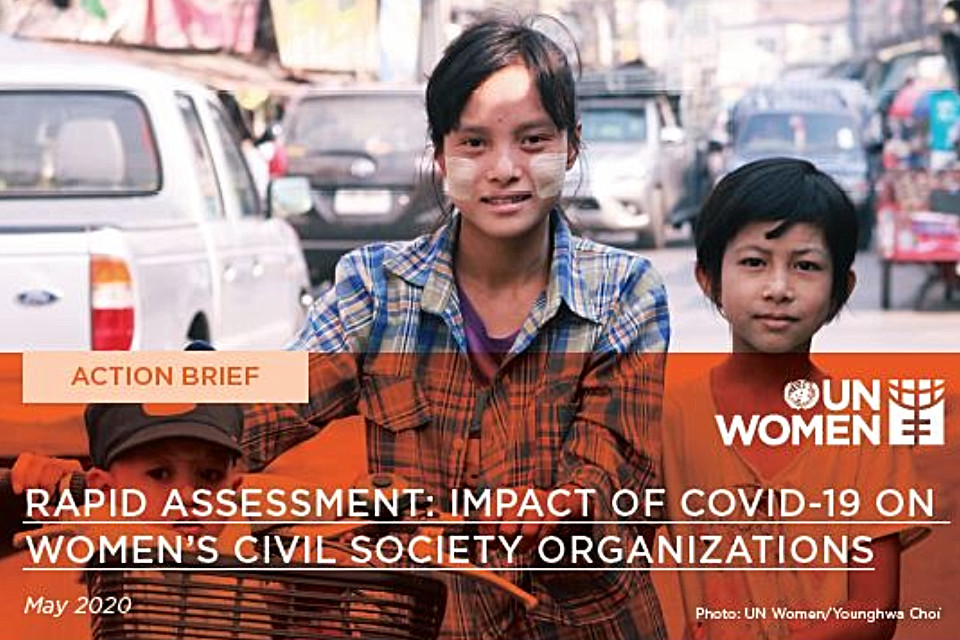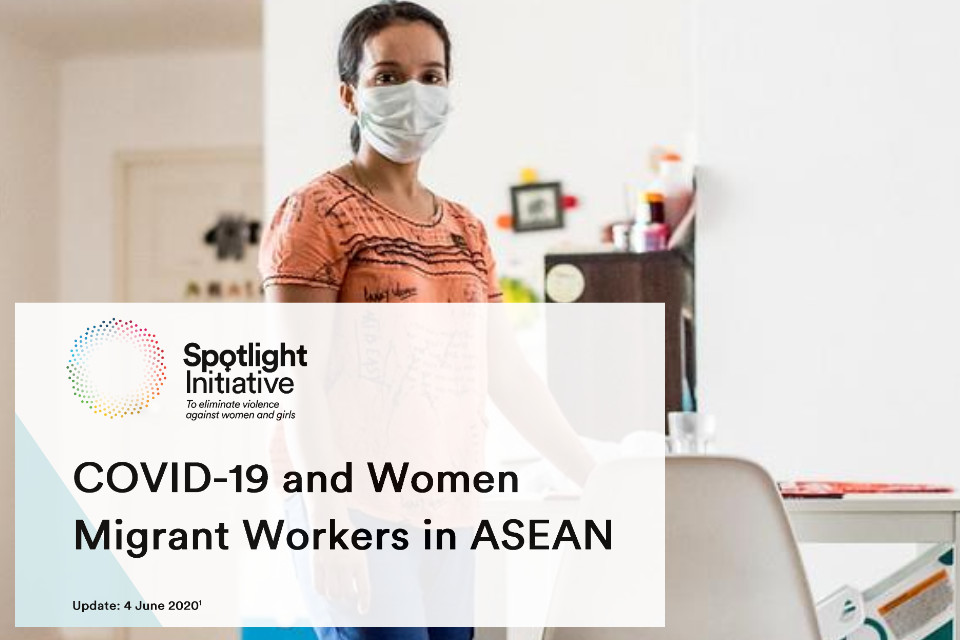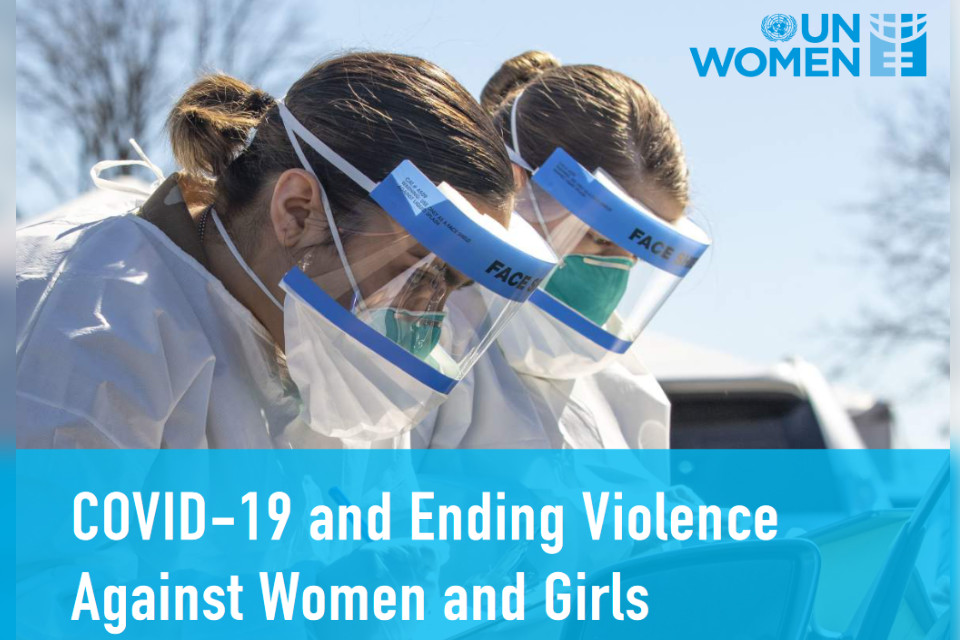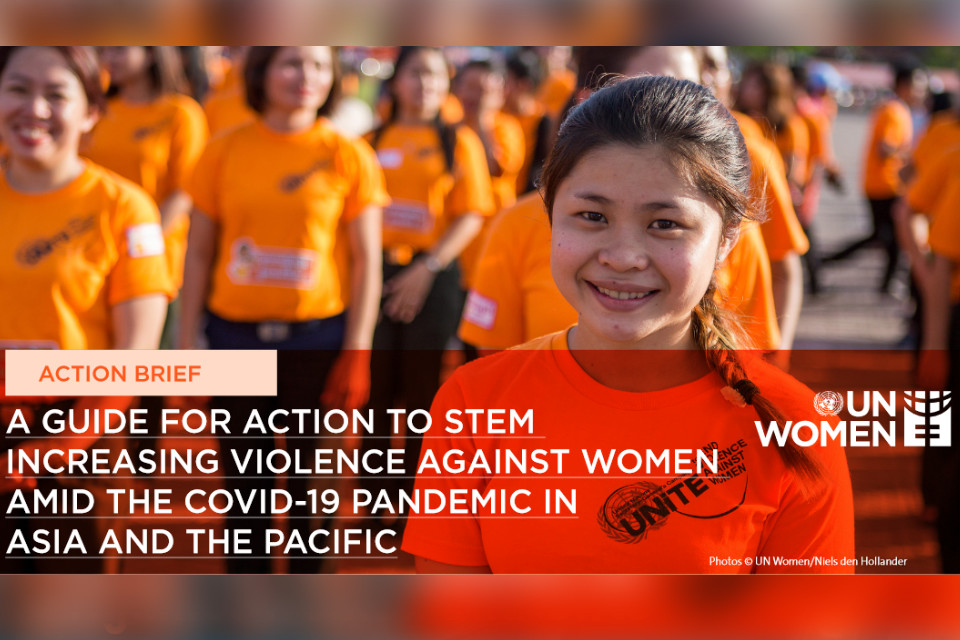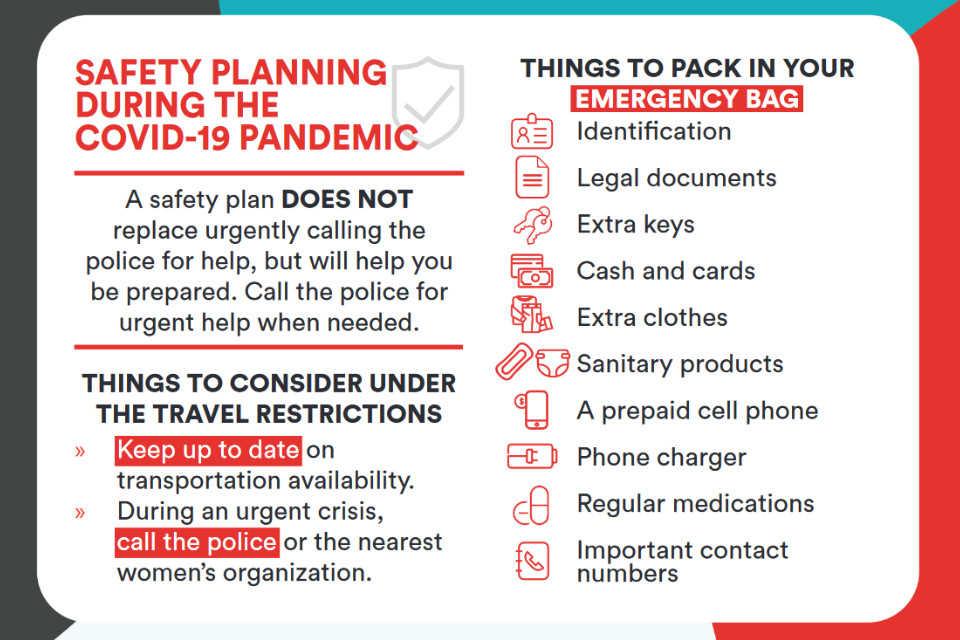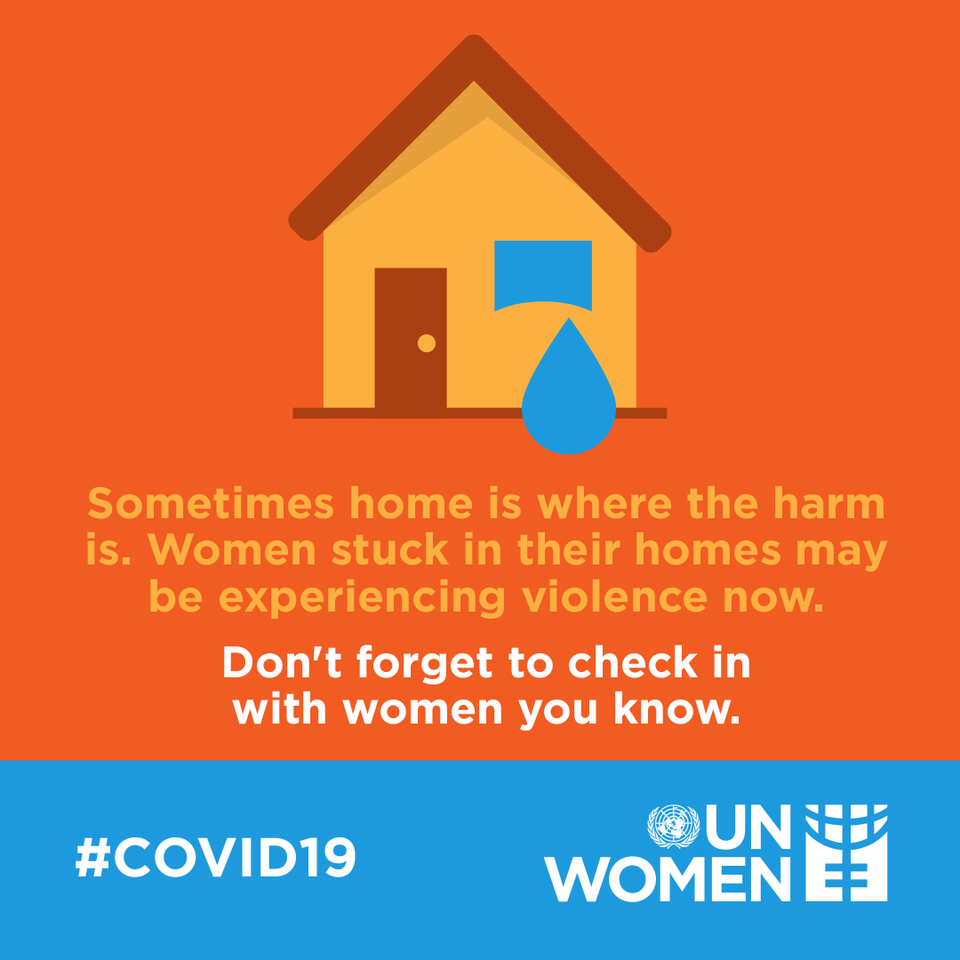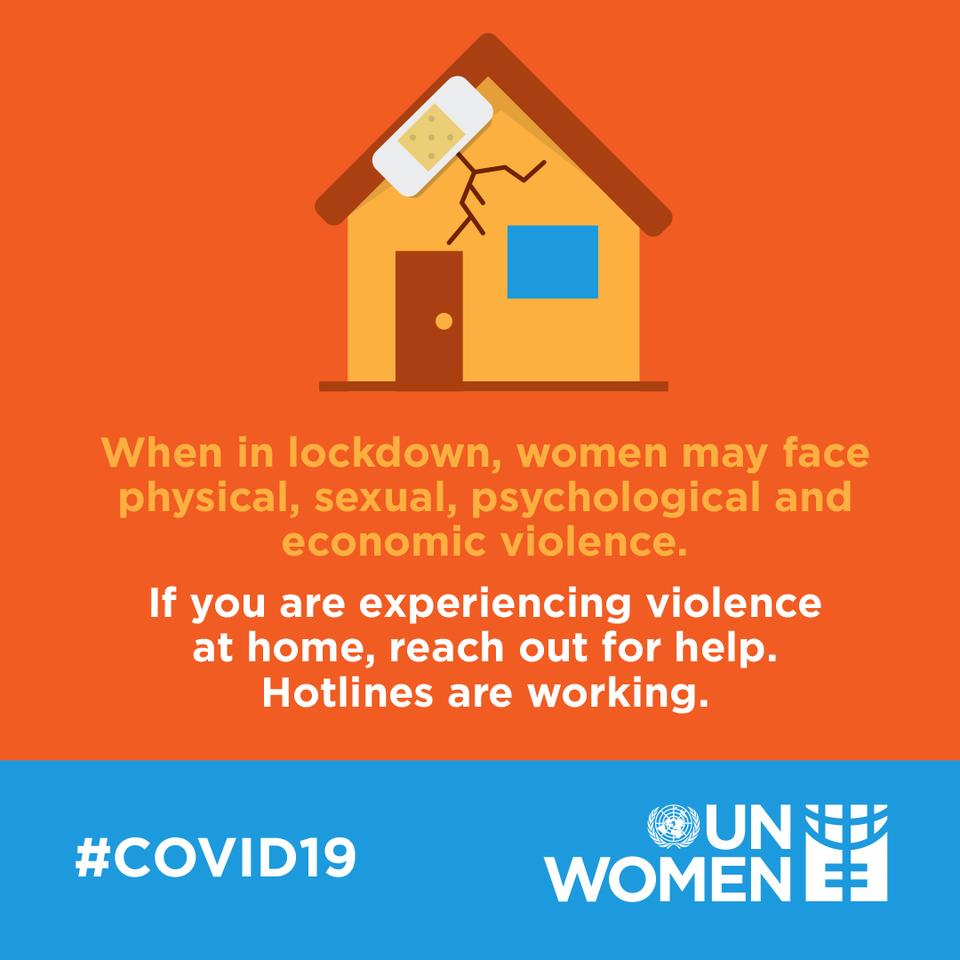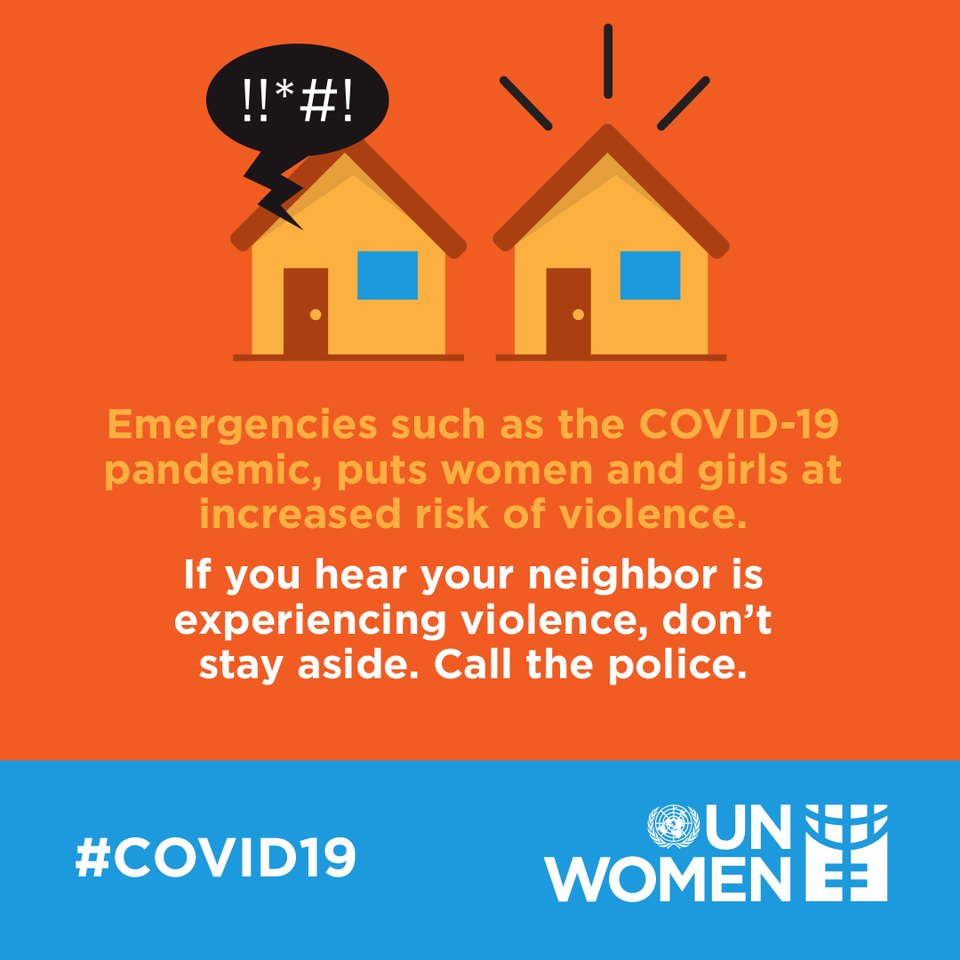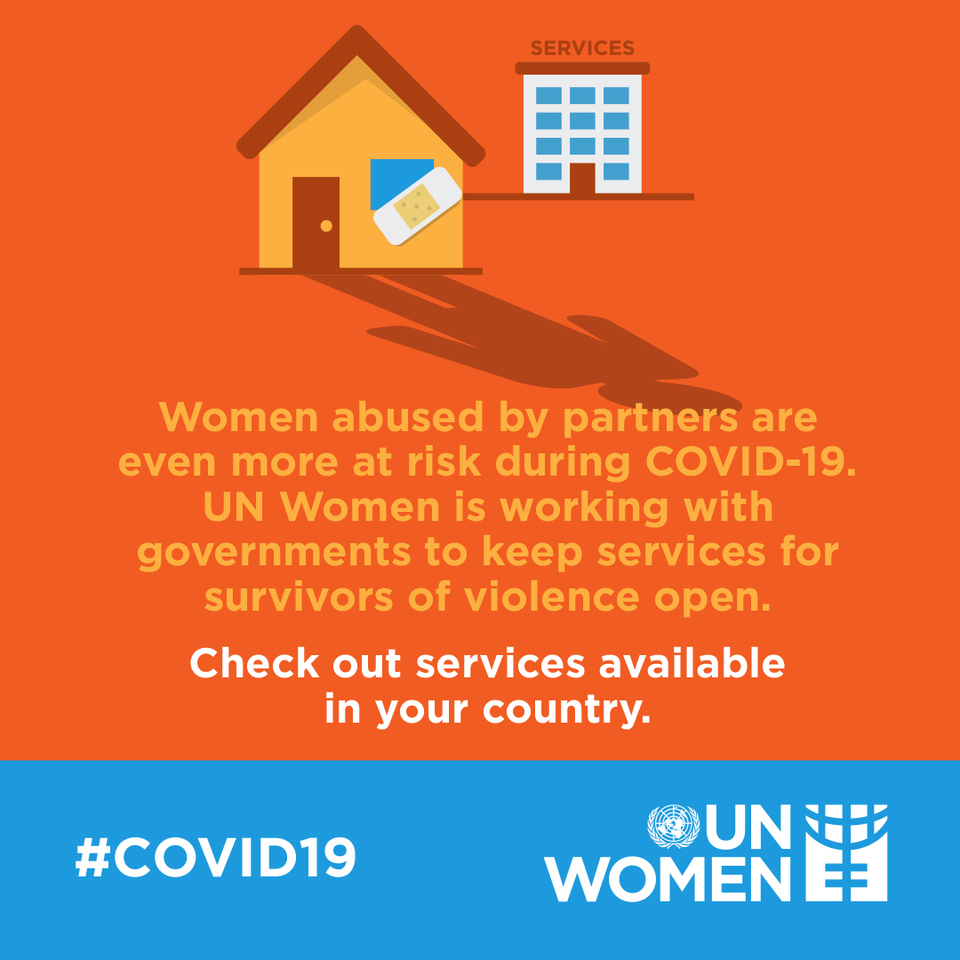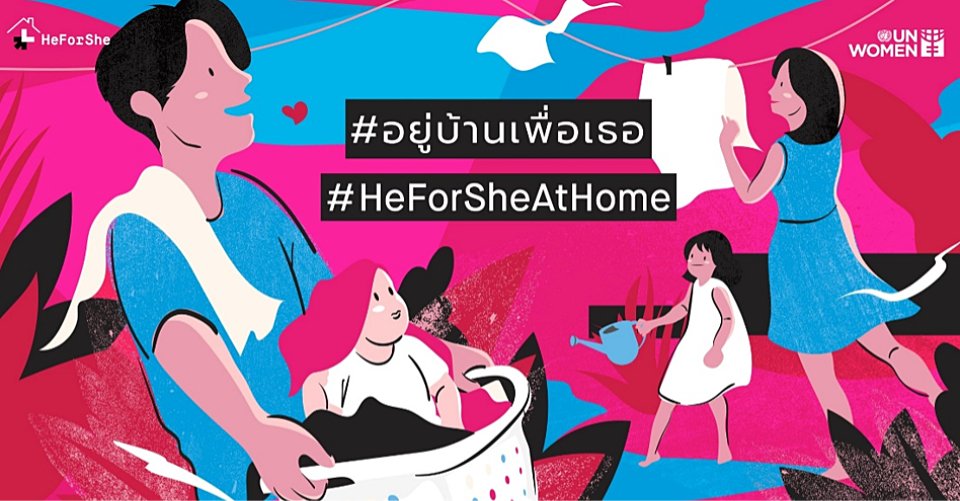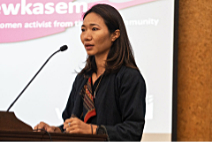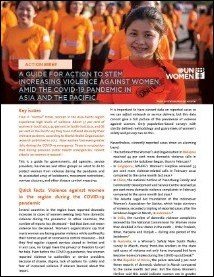Shadow Pandemic: EVAW and COVID Response
One of the most striking impacts of COVID-19 has been the increased violence against women in many countries. Even in “normal” times, women in Asia and the Pacific experience high levels of violence. Globally, one in three women experience violence at least once in their lifetime. In many countries in Asia and the Pacific, the number is even greater, with as many as 2 out of 3 women reporting experiences of violence in some countries.
With billions of people sheltering at home, trend is unfolding across Asia and the Pacific: violence is worsening for many women who are trapped at home with an abusive partner or family member and less able to call or go out to get help – and at a time when service providers are less available. In some countries, cases of domestic violence have risen by 30 per cent. Violence is apparent at homes and in digital spaces. The COVID-19 pandemic has put women at greater risk of violence as their movements are restricted, economic situations have become more precarious and protection systems are weakened.
The COVID-19 pandemic has demonstrated the continuity of services for survivors of violence against women are essential during a pandemic. Helplines, shelters and crisis services need protocols that include referral pathways in place to respond in pandemics. Services should adapt to help women and girls endangered by the movement restrictions due to the pandemic. This includes shifting services online safely and expanding the scope of services through text, chat and other technologies. There has never been a greater need to communicate about violence against women to ensure the targeted messages reach women and girls, the general audience, and various stakeholders. Prevention of violence is critical in understanding the root causes and risk factors of violence. The context of COVID-19 is exacerbating those factors and the impact it is having on rates of violence against women and the ability to undertake evidence-based prevention work in the current context.
UN Women in action:
- Strengthening services and access for survivors to services. We are working with service providers, such as helplines/hotlines, shelters, essential services, to help them shape these services to respond through technology or through remote support options.
- Working to strengthen systems to build back better. We are working with partners to ensure that systems are updated, policies are developed, and protocols to provide essential services during emergencies are in place.
- Reaching women and girls about important information on available services. We are working with various partners to provide information to survivors of domestic violence, for example, on service referrals, or safety plans, using accessible formats for different groups of women.
- Preventing violence against women. We are working with partners to prevent violence happening in the first place. Through various campaigns, engagement with education institutions, partnering with CSOs, media, influencers and the private sector, engaging men and boys, we are creating awareness and changing social norms.
- Developing guidance and recommendations on COVID-19 for governments, humanitarian and development actors to ensure that preparedness and response planning process is gender-responsive and EVAW is integrated.
Our message to women trapped with abusive partners during COVID-19:
- First, this is not your fault. Every person has the right to live in safety. Violence against women is never justifiable or excusable.
- Secondly, you are not alone in this situation: one out of every three of us have experienced or are experiencing the same.
- Third, please reach out for help. Identify and talk to a friend, relative or neighbour you can trust- or contact a helpline.
- Have a safety plan ready and include different options in the event that one plan is no longer feasible. Prepare essential items that you need to take with you- such as ID, insurance or medical documents, cash and contact information. We know that leaving is not easy, especially now: this is why planning can help you leave safely.
- If you have children, make sure they are aware of key information like phone numbers to call for help.
Our message to all other individuals:
- Educate yourself about domestic violence, including local helpline services and shelters so that you can provide them to someone who reaches out.
- Check on your friends, find out if they are okay and offer support.
- If you know someone is in danger, check in with her and give her information.
- Call the police if somebody you know tells you (or if you suspect) that they are in danger,
- If you have the means, donate to women’s organizations like UN Women. We partner with local organizations and frontline service providers globally to support women facing and overcoming violence across the world, every day.
- Help raise awareness about the increase of violence against women during the COVID-19 pandemic.
- Melissa Alvarado, UN Women Specialist, guides us through the complexities of this problem and explains what you can do to support victims while preventing violence from happening in the first place.
- Cindy Bishop, Thai-Americal supermodel, TV Host, Actress and founder of #DontTellMeHowToDress explains #Shadow Pandemic
Check out the Thai version of the video
- Hollywood actor Kate Winslet
Check out Nepali, Chinese, and Japanese subtitle versions of the video
- Indian actor, film director and activist, Nandita Das shares the light on the shadow pandemic. Supported by UN Women India, UNFPA India and other partners, this video send an important message to women in India to reach out for help:
Publications:
Get Involved:
Take Action on Social Media
Download the social media package and help us end violence against women during COVID-19 pandemic:
#HeForSheAtHome campaign
UN Women launched #HeForSheAtHome campaign to respond to the increased reports of domestic violence and burden of care housework on women during the COVID-19 pandemic. We are encouraging men to create respectful relationships at home and do their equal part when it comes to housework. We invite you, your husband, partner, brothers, sons, roommates, and everyone to join our challenge and inspire more men to do their equal part. Help us create change gender norms by raising awareness, sharing your photos/videos and inspiring others to follow your lead.
The campaign reached 46 million views in less than a month. Eight Thai celebrities— including supermodel, actor, TV host, and activist Cindy Sirinya Bishop, Singer Songwriter - Singto Numchok, and —have contributed as well. In total, over 150 people have embraced the challenge by creating their own unique #HeForSheAtHome photos and videos.
Latest news
Featured Story
From where I stand: “Stay home and stay safe—but what if home is where she feels unsafe?”
ISia Kukaewkasem is an advocate, social worker and survivor of domestic violence. For most people in Mae Sot, north of Thailand, she is a “big sister and friend” who listens and cares for others... More
Featured Publication
This is a guide for governments, aid agencies, service providers, businesses and other groups on what to do to protect women from violence during the pandemic and its associated array of lockdowns, movement restrictions, services closures, and other disease control measures. Read more
